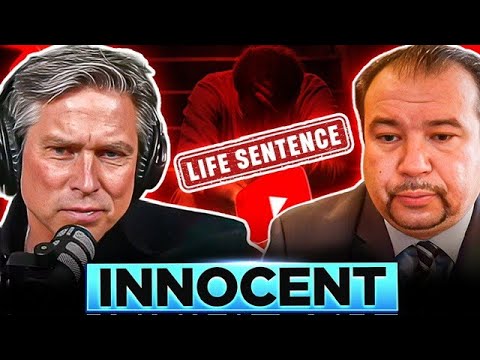The room was dimly lit, the fluorescent lights buzzing overhead as the clock ticked relentlessly. Jeffrey Deskovic, a 16 year old boy, sat nervously in an interrogation room, feeling the weight of the world on his shoulders. Just days before, a classmate named Angela had gone missing, and when her body was discovered, the police turned their gaze toward him. It was a moment that would alter the course of his life forever.
In that sterile room, surrounded by seasoned detectives, Jeff found himself ensnared in a web of fear and manipulation, leading to a coerced confession for a crime he did not commit. Jeff’s life before that fateful day in November 1989 was typical for a teenager. He lived with his mother and grandmother in Peekskill, New York, and while he was quiet at school, he thrived in the neighborhood. He was the kid who organized games and led his peers in sports.
But everything changed when Angela’s tragic fate thrust him into the spotlight for all the wrong reasons. The police, influenced by classmates who suggested they talk to him, began to scrutinize Jeff, treating him less like a victim and more like a suspect. This experience was surreal.
As the interrogation dragged on from morning to afternoon, Jeff was left vulnerable and alone without legal representation. The detectives played a psychological game with him, alternating between treating him as a suspect and appealing to him as a potential helper. They fed him details that he couldn’t have known otherwise, creating a false narrative that led him to believe he was complicit in something he never did. It was during this time that he unwittingly confessed, his mind clouded by fear and confusion.
Jeff was arrested and sentenced to 16 years in prison, a long stretch of time that would be defined by unimaginable hardship. The transition from a carefree teenager to an inmate was jarring. He faced the daily challenges of prison life while grappling with the knowledge of his innocence. Instead of being broken by this injustice, Jeff found a way to survive.
He clung to the hope that one day, the truth would come out. His emotional reaction to Angela’s death was misconstrued, leading to further suspicion. It felt like the world had turned against him, yet he remained steadfast in his belief that he would be vindicated. As we often learn, despair can sometimes lead to purpose.
After spending years behind bars, Jeff’s case was eventually taken up by the Innocence Project. Through tireless advocacy and the use of DNA evidence, the truth finally emerged, and Jeff was exonerated. His release from prison was not just a personal victory; it marked the beginning of his journey as an advocate for justice. The pain he endured transformed into motivation, and he founded the Jeffrey Deskovic Foundation for Justice to help others who had faced similar injustices.
His work has led to significant changes, including the freeing of 14 wrongfully convicted individuals and the passing of six laws aimed at preventing wrongful convictions. Jeff speaks passionately about his experiences, sharing his story across the country and meeting with lawmakers to push for reform. His journey is not just about seeking justice for himself, but also about ensuring that no one else has to endure what he did. Through it all, Jeff has remained remarkably grounded.
He often reflects on the emotional turmoil he faced during his imprisonment and how it has shaped his perspective on life and justice. The journey from being a suspect to becoming a voice for the wrongfully accused is a testament to the power of perseverance and advocacy. Jeff’s story reminds us that the road to justice can be fraught with obstacles, but it is a road worth traveling. His experiences underscore the importance of vigilance in our legal system and the need for compassion for those who find themselves caught in its snares.
There is a profound lesson in Jeff’s journey about the fragility of truth and the strength found in community and advocacy. As we listen to stories like his, we are reminded of our shared humanity and the responsibility we have to stand up for what is right.

